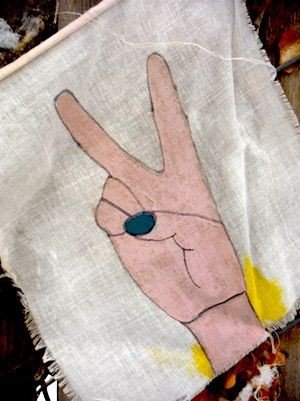Competition in Montessori

As the mother of 3 very healthy sons, competition is a large part of the parenting challenges that I face on a regular basis. How do I teach my children to be healthy competitors (always striving to be their best selves) and still celebrate the accomplishments of others? Montessori is a great environment for children to learn a nice balance of respecting and appreciating their peer group while knowing what it takes to push themselves. Enjoy this article by Edward Fidellow on Competition in the Montessori environment.
Competition in Montessori? Well, No! Which is it? Is there competition in the Montessori classroom or not? Well – yes and no! Let’s examine the “No” first. There is no formal institutionalized competition in the Montessori philosophy because Montessori is about your child not about your child in competition with others. Your child is not competing with any one else. Nor is your child competing for stars or popsicles or even attention. Your child is not being compared to anyone else in the environment nor is your child being set up to win or lose. Competition is not part of the curriculum or the philosophy and yet there is competition in the classroom. So where does it come from? It walks in the door with your child. Competition is part of human nature. Some of us are more competitive than others. Some of us lean more to cooperation but all of us have some of the competitive gene. What Montessori education can achieve is to help a child recognize and manage this human characteristic. Traditional education often uses the negative aspect of competition (“I’m better than you.”) to motivate learning and behavior. Children are unfairly forced into competition with others who may be more talented or gifted in certain areas while their own personality strengths (determination, aesthetic, creativity, compassion etc) are not recognized or valued because they do not fit the educational matrix that is being graded. Yet, it is these other strengths that in the end determine the satisfaction of a life well lived. Here, competition can be destructive to the developing self-image of the child. How many brothers and sisters grow up competing with each other – wasting years of energy – only to realize that they are in different races, have different personalities, different talents and different goals?
Learning to manage the positive aspects of competition has great value. In the Montessori classroom children get to choose the arena of their competition. It is never the slowest child who accepts the challenge of a race with the class sprinter but yet there are always takers. There are those who enjoy the demonstration of their abilities and those who want to stretch their own limits – which is only done against good competition. Montessori children (and mature adults) realize that there are venues in which they cannot compete and realistically assess their own goals and abilities. Montessori children can grow up into adults who have no need to compete with Hollywood looks, Wall Street money or professional athletic prowess because they are secure in knowing who they are and what their gifts and talents are. So, where do we find and how do we judge healthy competition in the Montessori classroom? We find its most excellent use in the Montessori concept of mastery. Mastery brings out and into focus the child’s most significant competitor – himself or herself. Mastery says “I’m not working for a grade, I am not working to get by or to do the least I can do. I am working for excellence. And I am my own competition.” And that is the mind set that produces success in life. Choosing your goals wisely (learning to choose wisely is another Montessori quality) according to your abilities, passions and goals brings the kind of success that is meaningful. Many people have found that unless you know who your real competitor is you often run races in life that give you no pleasure and bring you no closer to your goals. Montessori children are afforded the opportunity to compete with the best – themselves.